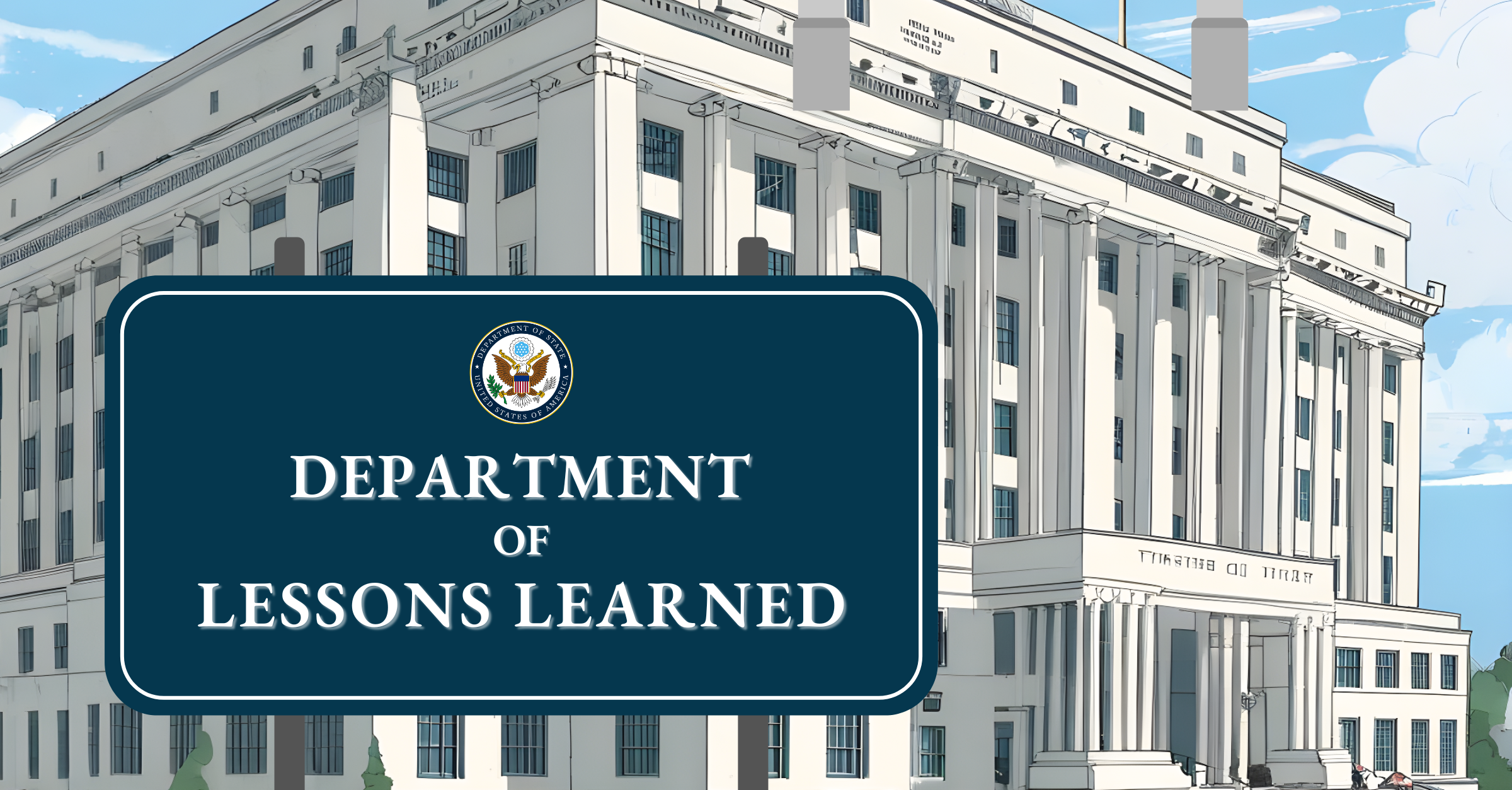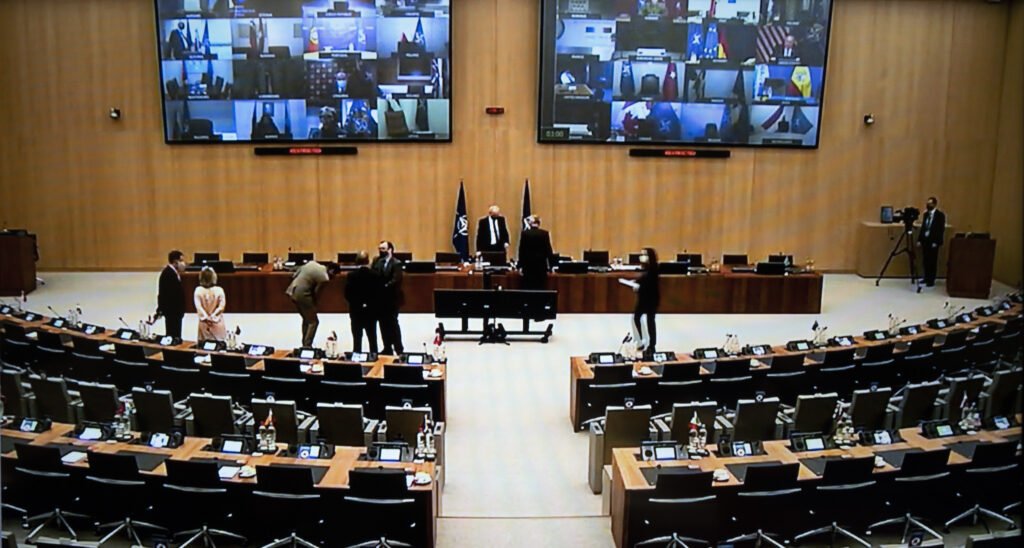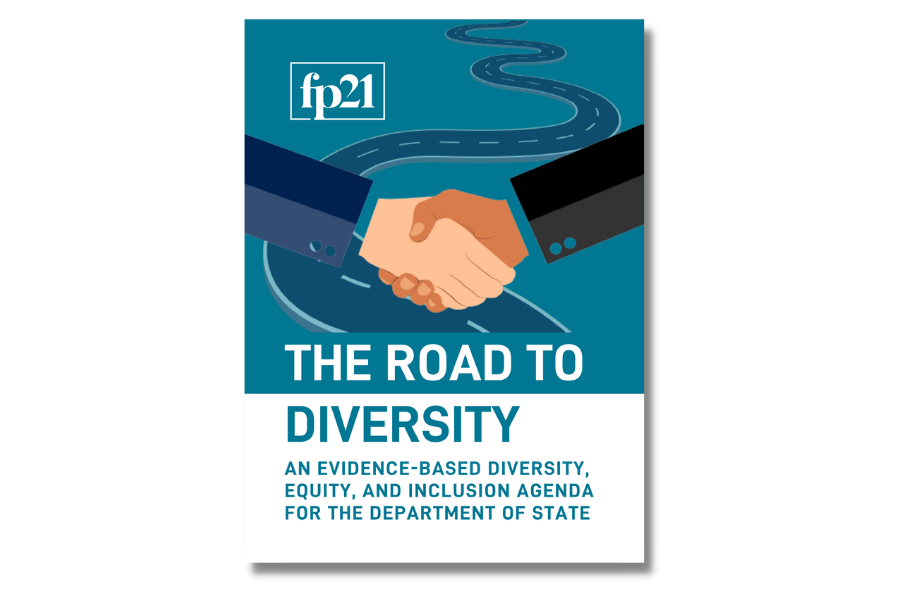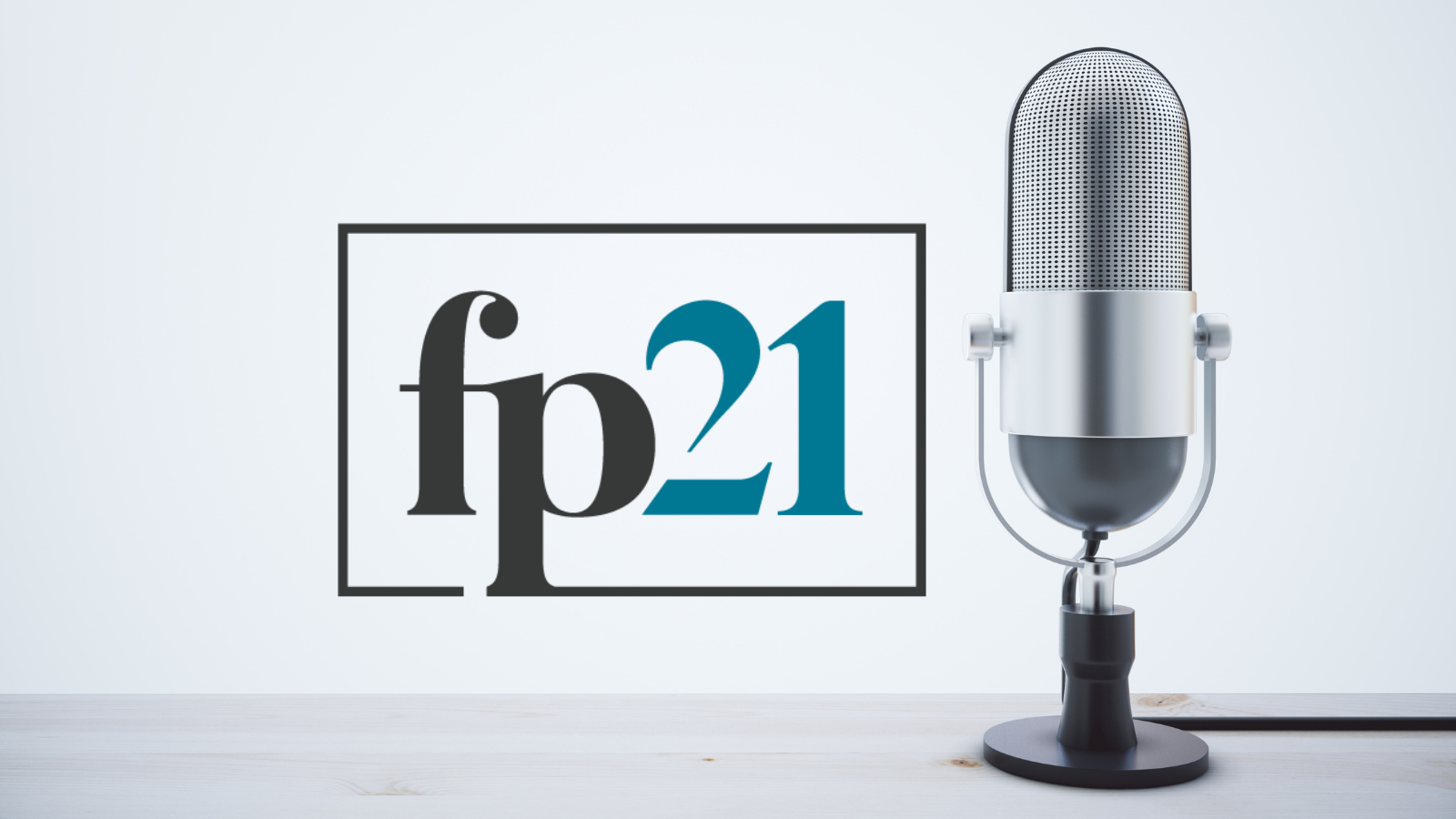Publications
fp21 is building a new culture of foreign policy. Explore our publications below.

The State Department Authorization Act: More than A Seat at the Grown-Ups’ Table During the Holidays
Lindsey Michele: Congress has just passed the State Department Authorization Act for the 2nd time in almost 20 years. Returning State Authorization to a yearly habit – and the requisite oversight it requires – is essential for a healthy foreign policy. The alternatively is haphazard and ad hoc oversight which contributes to haphazard and ad hoc policy.

Reflections on the American Diplomacy Project
Lindsey Michele and Dan Spokojny: When eight of the most experienced and accomplished diplomats alive write a report about how to revitalize the State Department, we must listen. Their work represents a coalescing and deepening of the recommendations from a number of the most influential State Department-focused institutions. Yet, we wonder: How can the authors both recommend that FSOs assume more authority and that State Department training is woefully inadequate?

The State Department’s New Strategy Prioritizes Evidence-Based DEIA
Rachel George and Beverli DeWalt: The State Department just announced its five-year strategic plan for Diversity, Equity, Inclusion, and Accessibility (DEIA). The strategy, led by the new Office of Diversity and Inclusion, commits to an evidence-based approach to diversity. This emphasis on evidence in the new strategy lays a necessary foundation for ensuring that diversity efforts have their intended effects, and, critically, that they do no harm.

Making “Lessons Learned” Stick

ChinaTalk: Moneyball and US State Department
Wouldn't it be nice to have a world where important policy decisions were decided based on evidence and data rather than narratives and turf battles? Jordan Schneider sat down with Dan Spokojny and Jon Bateman to discuss the current failings of contemporary U.S. foreign policy and how to fix these failings.

Doctrine for Diplomacy: To Remain Relevant, the U.S. State Department Needs a New Statecraft
Dan Spokojny: Many diplomats suggest that policy effectiveness arises from an elusive combination of good judgment and hard-earned experience. But good foreign policy must be more than simply a matter of taste. The military has doctrine. The intelligence community has tradecraft. Diplomacy has not kept pace. It is time to start treating the conduct of diplomacy as a profession with its own standards, methodologies, and skills: statecraft.

The U.S. Should Practice What It Preaches on ‘Good Governance’
Rachel George: Washington’s emphasis on good governance in fragile states requires more attention to institutional modernization at home. The coronavirus pandemic and myriad new global challenges have highlighted the importance of addressing the fractures and failures within the U.S. agencies tasked with implementing US foreign policy. The disconnect between applying good-governance principles at home as cohesively as they are being promoted abroad is glaring given U.S. expertise on adaptive management in the effort to enhance global stability and resiliency.

Let's Get Serious about Research for Diplomacy: A proposal for a foreign policy-focused FFRDC
Dan Spokojny & Alexandra Blum: The Department of State has a knowledge problem. Few diplomats have the time or training to conduct serious research, nor is any office dedicated to answering central questions like, “When does U.S. diplomacy work?”. The State Department requires help answering such ambitious and vital questions. To fill this gap, we recommend State sponsor a new Federally Funded Research and Development Center (FFRDC) for U.S. foreign policy.

State Department Data Requires Oversight to Avoid Digital Anarchy
Dan Spokojny: Rapid progress on data at the State Department is turning up some pain points. Data scientists struggle to access the information they need in a timely fashion. Tangled and outdated legal authorities tie the hands of analysts trying to collaborate. Valuable data sets collected or purchased by one office are not accessible to other offices. And an archaic IT infrastructure held together with duct tape makes diplomacy’s information superhighway feel more like a dirt road. To avoid digital anarchy, Congress should give State’s first-ever Chief Data Officer (CDO) oversight over all of State’s data resources.

The Road to Diversity: An Evidence-Based Diversity, Equity, and Inclusion Agenda for the Department of State
This report deepens our understanding of the research on workplace diversity, equity and inclusion (DEI) initiatives and build a strong foundation of evidence for policymakers to use. We evaluate the most common recommendations to improve DEI based on the best-available evidence in organizations, categorizing each recommendation based on its likelihood of success according to the research.

It’s Official: All Foreign Service Officers Must Learn Data
Dan Spokojny: The State Department will now be evaluating foreign service officers on their proficiency in data collection, analysis, and decision-making following an update to the decision criteria for tenure and promotion. This change to the core precepts reflects the Department’s recognition that data skills are an indispensable part of every leader’s toolkit in today’s information economy.

fp21 Applauds Blinken’s Modernization Steps but Urges Deeper Reforms
Dan Spokojny: Advocates for a strong Department of State should celebrate the Modernizing Diplomacy Initiative. Yet, taken as a whole, the Initiative feels a bit more routine than modern. While everything in the speech was positive – there were at least 21 deliverables organized across five “pillars” for reform – the strategy may not add up to the “historic” change Blinken suggests.

We Are Not Capable of Learning the Lessons of Afghanistan
Dan Spokojny: Lessons are empty wishes without national security institutions capable of actually learning and evolving. Learning, like war, requires an effective strategy and organization to accomplish success. If twenty years of war in Afghanistan have proven anything, it is that our national security institutions have a hard time learning from failure. Yet there is still hope for efforts to draw lessons from Afghanistan. Reformers have an opportunity refocus their attention to improving the processes and institutions of US foreign policy.

State’s New Data Strategy: A (potentially) historic step
Dan Spokojny: The State Department released its first ever Enterprise Data Strategy last week, marking a potentially historic turning point in the conduct of US diplomacy. Deputy Secretary of State Brian McKeon, calls a data-powered world a “paradigm shift” and suggests a “culture change in the Department” will be required. The strategy also suggests that if the United States cannot harness the power of data, we risk getting out-competed by our adversaries.

Upgrading U.S. Public Diplomacy: a behind-the-scenes look at a new model for reform.
What should the future of diplomacy look like? Upgrading U.S. Public Diplomacy: A New Approach for the Age of Memes and Disinformation, published in collaboration with the Atlantic Council, outlines a set of principles and actions to strengthen the State Department’s public diplomacy institutions, domestically and abroad.
This blog post goes behind the scenes of this unique participatory model of research which prioritize consultations staff at every level of the bureaucracy.

Episode 11: The Memo Machine
This week, we are joined by Daniel Balke and Aaron Faust. Both are active founding volunteers of fp21 and have poured gallons of sweat equity into building the intellectual and organizational foundation of our young outfit. Our guests will introduce their background after they do that the conversation touches on the difference between training in foreign policy versus that in the military, possible ways of mobilizing outside expertise the possibility of bringing design thinking into the foreign policymaking process, especially when it comes to the design of decision memos. Finally, both Daniel and Aaron share their views on what constitutes success for fp21.

Press Release: Carnegie Corporation of New York Award Positions fp21 to Advance a New Model for Foreign Policy
fp21's mission to transform U.S. foreign policy received a huge boost: we are so proud to announce that Carnegie Corporation of New York awarded fp21 a grant to fund general operations. This funding marks the first institutional support for fp21, launched as an all-volunteer operation in September 2020. The grant will help us build a more modern and effective U.S. foreign policy driven by evidence and integrity.

Episode 10: Simulating Diplomacy
Alex Bollfrass interviews the Harvard Davis Center's Arvid Bell about creating realistic training environments for foreign policy practitioners. fp21 CEO Dan Spokojny reflects on events in Afghanistan.

Dear Congress: A Big Foreign Affairs Budget Does Not Guarantee Better Diplomacy
Ryan Dukeman and Dan Spokojny: President Biden’s FY22 International Affairs budget proposes the largest increase in non-emergency funding for diplomacy and development in a decade, and some in Congress want to go even bigger. But such investments risk doubling down on existing underperforming organizational structures and processes rather than enabling new ones. What we need now is better diplomacy, not just more.

Episode 9: Not Data Tyrants
The second part of Dr. Thomas Scherer and Dan Spokojny talking about their article, Foreign Policy Should be Evidence-Based.

